When you think of an actress who could command the screen with both vulnerability and steel, one name stands out—Nancy Allen. Whether she was captivating as Liz Blake in Dressed to Kill or fearless as Anne Lewis in RoboCop, Nancy became a cinematic force whose magnetism never dimmed. At 72, her elegance still turns heads, her legacy still ignites admiration, and her performances remain unforgettable. Let’s take a deep dive into the world of this extraordinary woman who danced, acted, and conquered Hollywood on her own terms.

From Bronx Beginnings to Broadway Dreams
Born on June 24, 1950, in the Bronx, New York, Nancy Allen grew up in a family that embodied hard work and resilience. Her father was a New York police officer, and her mother encouraged Nancy’s early fascination with performance. But few would’ve guessed that this shy little girl, often hiding behind her mother’s skirt, would one day light up movie screens worldwide.

Her journey began with dance—the spark that ignited her artistic confidence. By age four, she was twirling in tutus, letting rhythm break her shell. As a teenager, she attended the prestigious High School of Performing Arts in Manhattan, where her natural flair for movement evolved into a love for acting. Commercial gigs soon followed, each one a stepping stone to stardom. For Nancy, the transition from the dance floor to the film set was seamless—she had already learned how to command attention without saying a word.
Video : Nancy Allen unrecognisable in unearthed racy pics from start of lengthy Hollywood career
De Palma’s Muse: The Rise of a Thriller Icon
Nancy Allen’s destiny took a dramatic turn when she met director Brian De Palma, the visionary behind some of the most suspenseful films of the late 20th century. Their creative partnership—and later, brief marriage—became Hollywood legend.
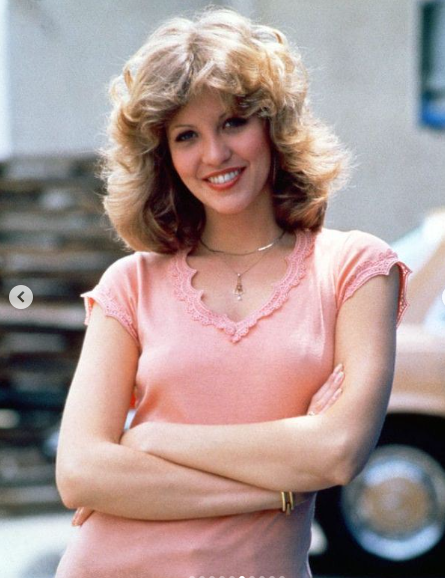
Her breakout moment came in 1976’s Carrie, where she played the cruel yet complex Chris Hargensen, whose bullying of Sissy Spacek’s Carrie led to one of cinema’s most haunting climaxes. But Nancy was just getting started.

In Dressed to Kill (1980), she stunned audiences as Liz Blake, a call girl entangled in a brutal murder mystery. Her performance balanced sensuality with street-smart intuition, earning her a Golden Globe nomination and establishing her as one of De Palma’s defining stars. Then came Blow Out (1981), opposite John Travolta—an electrifying mix of paranoia, passion, and political conspiracy. Nancy’s portrayal of Sally, a woman trapped between innocence and danger, remains one of her finest performances.

Through these films, Nancy Allen didn’t just play women in distress—she played women in control, rewriting the rules for female characters in thrillers.
Action Heroine: The Power and Poise of Anne Lewis
By the mid-1980s, Nancy reinvented herself again—this time as a sci-fi action heroine. In RoboCop (1987), she embodied Officer Anne Lewis, the courageous partner of the cybernetic law enforcer played by Peter Weller. Her portrayal broke stereotypes: Lewis wasn’t a sidekick or damsel—she was a moral compass and a fighter.
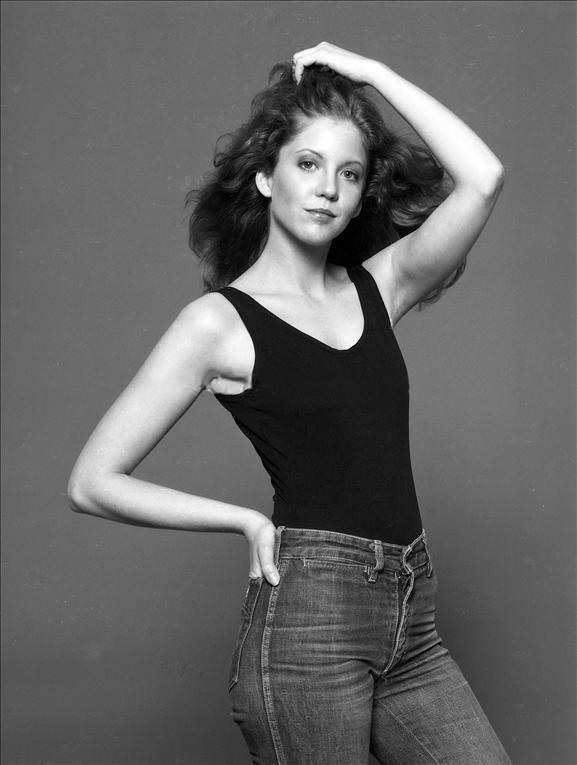
Audiences adored her. Critics praised her balance of toughness and empathy. The film’s massive success led to sequels—RoboCop 2 (1990) and RoboCop 3 (1993)—cementing her as one of the era’s most beloved female action icons.
Her role in RoboCop reflected something deeper about Nancy Allen herself: resilience under pressure, compassion amid chaos, and strength wrapped in quiet confidence. She wasn’t just acting; she was channeling a spirit that mirrored her real life.
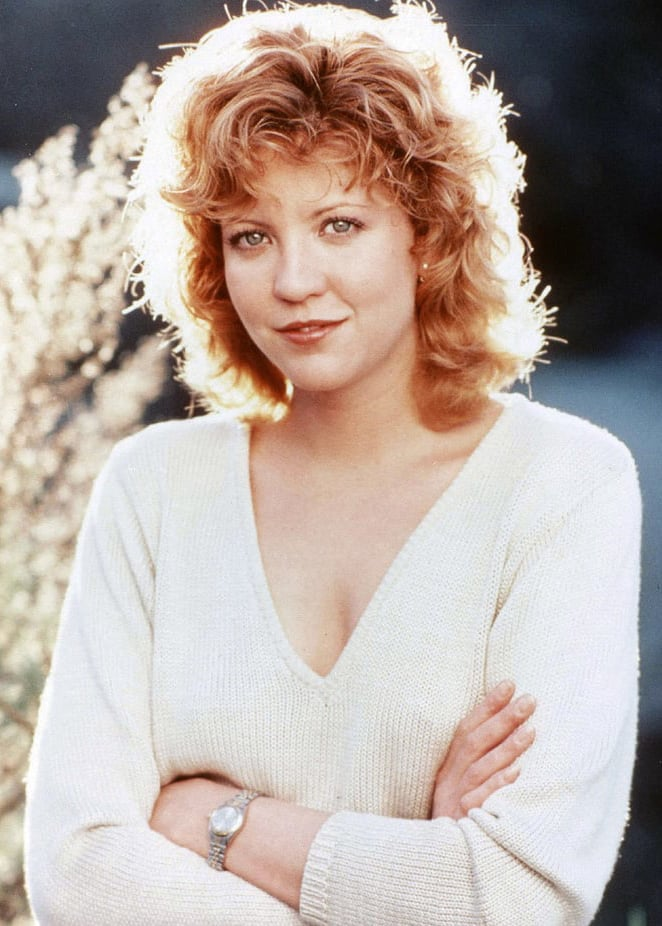
Beyond the Spotlight: Personal Triumphs and Reinvention
Behind the glitz, Nancy’s life wasn’t without storms. Her marriage to Brian De Palma ended in 1984, followed by another to actor Craig Shoemaker that also dissolved. Yet she never allowed personal setbacks to define her story.
In the 1990s, Nancy faced her toughest challenge—a battle with breast cancer. But, true to form, she fought with unwavering courage. Her recovery led to a renewed purpose: helping others facing the same struggle.

That’s when she joined weSPARK Cancer Support Center, founded by her late friend Wendie Jo Sperber. Nancy later became the organization’s Executive Director, turning her pain into purpose and using her fame for healing. Her advocacy became just as impactful as her film career—a legacy of heart as much as art.
Video : Rare Photos of Nancy Allen Like You’ve Never Seen – Untold Stories Inside
Timeless Talent: The Versatile Actress Who Could Do It All
While many remember Nancy for her thrillers and action roles, her filmography is impressively diverse. She shone in The Philadelphia Experiment (1984), a sci-fi love story with a historical twist, and in Poltergeist III (1988), where she faced supernatural terror with calm conviction.
Her later work spanned television and indie films, where she played everything from detectives to single mothers, always infusing her characters with authenticity. Unlike many stars of her generation, Nancy Allen aged gracefully—on her own terms, without chasing trends or fame.
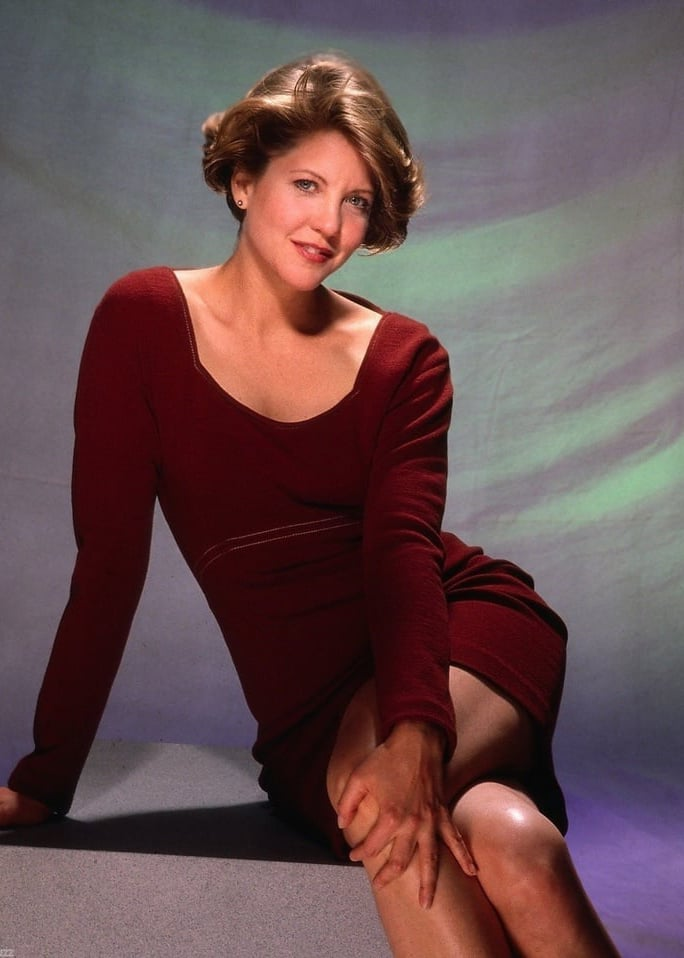
A Graceful Legacy: Nancy Allen Today
Today, Nancy Allen has gracefully stepped back from Hollywood’s glare, preferring quiet mornings in Los Angeles to flashing cameras. At 72, she remains radiant—her charm undimmed, her smile still that of a woman who lived many lives and loved every act.
She continues her advocacy with weSPARK, inspiring countless women with her story of survival and compassion. Though she rarely appears on screen now, her influence lingers across genres—from horror to sci-fi to drama. Every aspiring actress who plays a strong, self-reliant woman owes a silent nod to Nancy Allen.
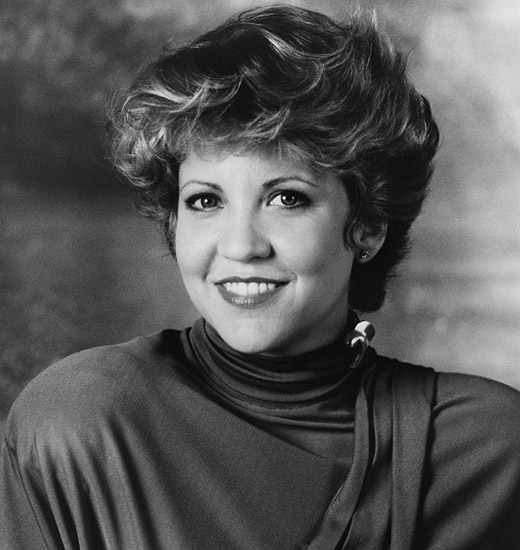
Conclusion: The Everlasting Allure of Nancy Allen
Nancy Allen is more than a film icon—she’s a testament to evolution, endurance, and elegance. From her Bronx beginnings to her unforgettable roles in Carrie, Dressed to Kill, and RoboCop, she has embodied every shade of the human experience—fear, fire, and faith.

She taught us that beauty isn’t just in the face; it’s in the fight. And even now, decades after her breakout, her work still feels alive, her characters still whisper through the silver screen.
So next time you rewatch RoboCop or Blow Out, remember this: Nancy Alle